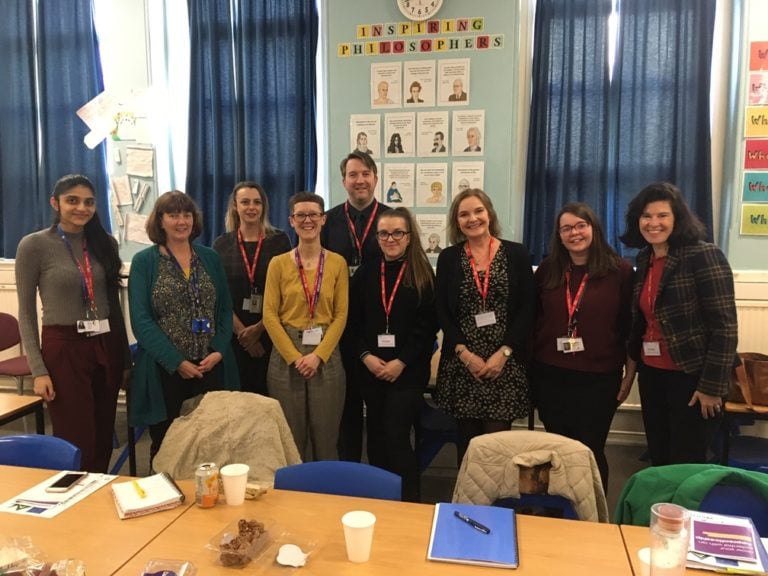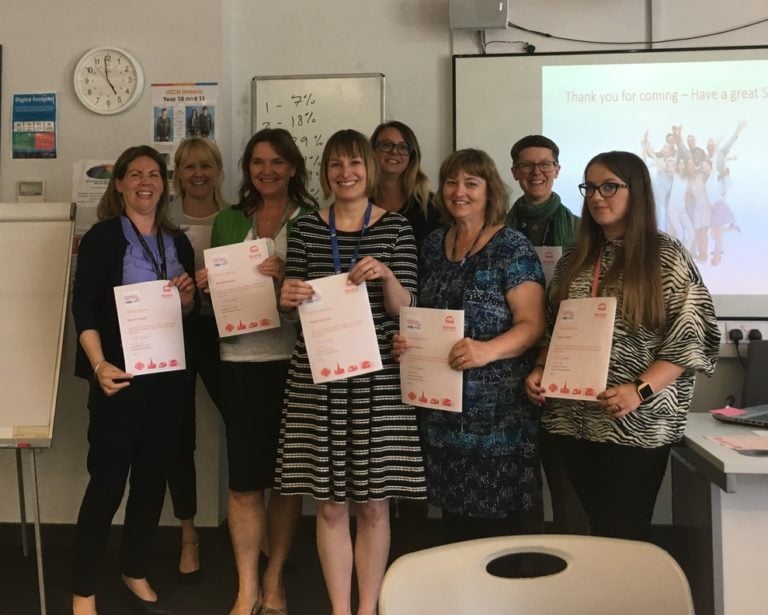Why was the project needed?
Headteachers identified that the range of offers and providers for schools was overwhelming, both locally and nationally, and capacity for schools to engage was limited. Many Norwich schools were not yet fully meeting the expectations set in the Government’s 2017 Careers Strategy, for schools to meet the Gatsby benchmarks by 2020, and not all schools were achieving enough employer encounters. It also wasn’t clear which employer encounters were the most effective at delivering positive outcomes for disadvantaged young people.
Employers in Norwich told us they were enthusiastic about supporting young people but found it hard to know how best to help. Young people in Norwich told us they wanted a curriculum that prepared them for working life, provided effective careers advice and delivered more encounters with employers – particularly hearing from young, local role models.
What happened and what was the impact?
Careers facilitators in every Norwich secondary school worked together to improve their Compass scores against all 8 Gatsby benchmarks, to share best practice approaches and to organise and deliver large scale employer engagement activities collaboratively, to save time and resources.
The Norwich Opportunity Area (NOA) Aspirations, Transitions & Destinations working group agreed that supporting and strengthening the infrastructure for careers education was the priority and coordinating the best use of available support and opportunities.
An expert provider was commissioned to deliver a two-year programme of continuing professional development (CPD) and support and to facilitate regular meetings to develop a peer network. All local secondary schools were encouraged to sign up to participate. Twelve school-based staff signed up and were trained in delivering the Gatsby benchmarks across NOA secondary schools through a series of CPD workshops. These provided additional expertise and capacity for existing Careers Leaders in schools to support students. The group developed a collaborative network and met together once a month for CPD workshops, facilitated by our external provider, Form The Future.
Sessions included updates from numerous careers and enterprise providers for schools to understand the variety of available offers and plan them into a cohesive and high-quality programme for their students.
Careers facilitators were encouraged to share, review and improve their individual school careers strategies and created action plans to address short term gaps.
Working together, the careers facilitators designed and delivered two large scale employer engagement activities across Norwich, to improve the quality and breadth of careers events offered and to save time and resources in organisation.
What did and didn't work?
Providing a programme of high quality CPD tailored to participant needs, alongside providing additional capacity for individuals to focus on careers within their own school and access to a network of peers, was highly effective. Careers facilitators valued the time to collaborate and to share progress and current barriers together as a group. Joint, large-scale employer engagement activities were well received and saved time and resource when schools worked collaboratively.
The collaborative network supported careers facilitators to share, review and improve their individual school careers strategies, this improved confidence significantly.
“Network meetings have been incredibly useful, the sharing of ideas, experience and best practice has been invaluable.”
“I find the careers facilitators network really useful and when others share useful insights and tips it gives me confidence with what I’m doing.”
Two large-scale employer engagement events were attended by over 1,200 students from across Norwich. The events were positively received by students, parents and teachers, with 88% of participating students saying they had learnt about new post-16 options and felt more informed about their potential next steps and more confident about their future.
“A terrific event and very useful, we met providers we didn’t even know existed.”
“As a school we would never be able to do something like this ourselves, or give our students this much information about options, so it was a real success.”
The project originally included a “consultancy support” offer for schools to access individually. It was soon clear that the network and the opportunity for group learning were the strongest elements of the project so we used the consultancy hours to run additional CPD workshops for the network.
How did you measure success?
At the end of 2019/20 academic year, participating schools had consolidated their progress towards meeting the Gatsby benchmarks, outperforming the Opportunity Area average for its scores against 6 of the benchmarks, and outperforming the national average for its scores against 7 of the benchmarks.
The NOA’s target was to create 36,837 meaningful employer encounters by July 2020 but this was exceeded with 68,218 (185% of the original target) employer encounters achieved by July 2020.
This has contributed to 73% of schools in the NOA reporting to have fully achieved Gatsby benchmark 5 (encounters with employers and employees) and 27% having partially achieved it in the 2019 to 2020 academic year.



If you've got any thoughts and ideas of how this approach could be improved or an positive impact it's had for you, add them below
Login or register now to post any comments